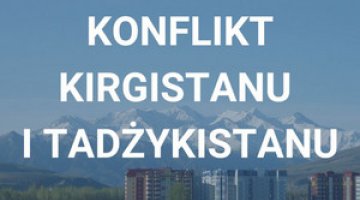Crisis in Russian-Tajik relations. The international and internal dimensions for Russia
On 8 November, the Tajik court of first instance handed down jail sentences of eight and a half years to two pilots (one a citizen of Russia, the other of Estonia) who were working for the Russian company Rolkan Investment Ltd. They were accused of violating flight safety standards, illegal border crossing and smuggling. The pilots were contracted to the American company Supreme Food to haul non-military cargo for the ISAF forces in Afghanistan, and were arrested in March this year after making an emergency landing in Qurghanteppa, southern Tajikistan. Much remains unclear in this case; some evidence suggest that the people involved were connected to drugs and arms trafficking.
The judgement has been sharply criticised by Russian politicians, who have used the sentencing of a Russian citizen to put pressure on Tajikistan. President Dmitri Medvedev announced that any response could be “symmetrical or asymmetrical”, depending on the explanations from Dushanbe. Russian foreign minister Sergei Lavrov demanded a review of the sentence. At the same time, raids began in Moscow on illegal immigrants from Tajikistan: nearly 300 people were arrested for deportation. The authorities have not ruled out banning the employment of Tajiks, justifying this by the prevalence of infectious diseases among them. This move, which was accompanied by an anti-Tajik campaign in the media, has been supported by nationalist movements and organisations, whose actions have included organising pickets in front of Tajikistan’s embassy.
Commentary
- The case of the pilots has become a convenient pretext for Moscow to discipline Tajikistan in connection with Dushanbe’s resistance to Russian expectations. For example, Moscow would like Russian border guards to return to the Tajik/Afghan border (where they were stationed until 2005). It also seeks to consolidate and extend its military presence in the country, especially in the context of the planned withdrawal of Western forces (led by the U.S.) from Afghanistan by 2014. Security issues were the main subject of talks during President Medvedev’s visit to Tajikistan this September, but no agreement was reached at that time. Nor does Dushanbe seem willing now to grant any major political concessions to Moscow (one condition for this could be Russia’s assistance in completing the construction of the Rogun hydroelectric plant) – despite the fact that as a result of the Russian pressure, the verdict on the pilots will probably be dramatically alleviated in the court of second instance.
- The anti-Tajik campaign in Russia gives the impression of being a coordinated, centrally controlled action, aimed at mobilising and channelling the recently active nationalist electorate before the elections to the State Duma scheduled for 4 December. According to the Levada Centre, about 46% of Russians feel hostility to a lesser or greater degree towards representatives of other nationalities. The action against illegal Tajik migrants (who are estimated at over one million in total, and are second only to Uzbeks among inhabitants from Central Asia; they annually send home to their families a sum amounting to about 40% of Tajik GDP) are ad hoc and impulsive in nature. The ostentatious deportations are intended to show that the Russian government is dealing with the acute social problems effectively, and is looking after the interests of Russian citizens. It is expected that a total of several thousand people will be deported. Consistent and rigorous enforcement of the law would, in the long run, cause gaps in the Russian labour market which would be difficult to fill; guest workers from Central Asia frequently work on building sites, as janitors, garbage collectors, etc. – work which Russians do not want to do.



